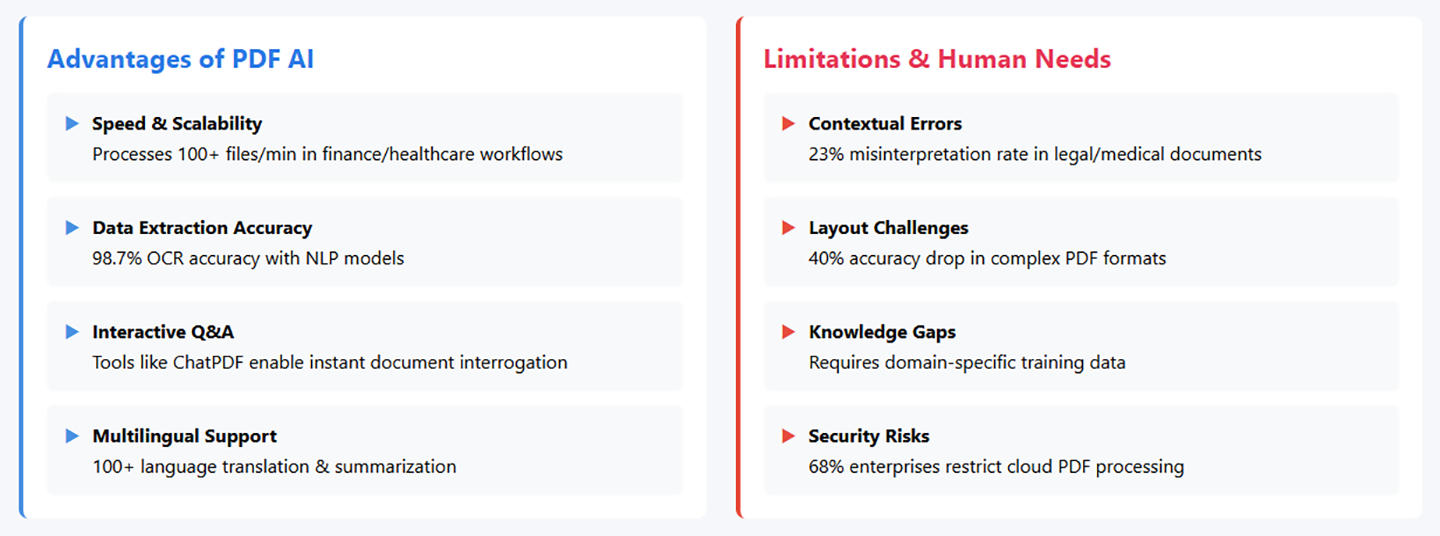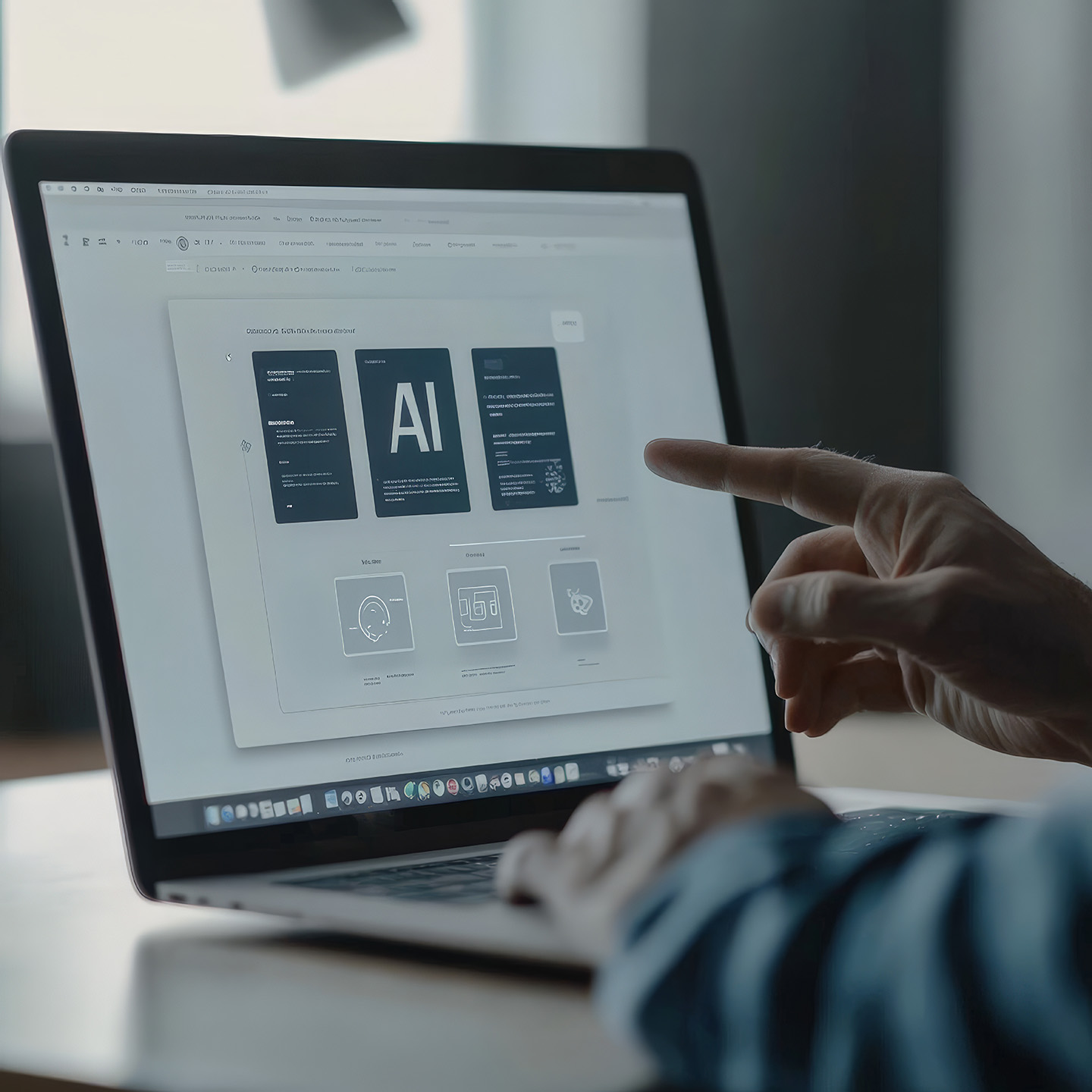In today’s fast-paced digital landscape, PDF AI has transformed from a simple document format enhancer into a sophisticated intelligent assistant As we explore the journey of PDF AI, we will uncover how these tools have evolved, their comparative advantages and drawbacks, the multifaceted impact on various industries, the ethical dilemmas they pose, and practical guidelines for their responsible application. Along the way, we integrate insights on AI PDF summarizer solutions—such as AI PDF summarizer, PDF summarizer AI, and AI for PDF—to ensure our discussion is both comprehensive and actionable.

How Has PDF AI Evolved Over Time?
The Birth of PDF and Early Automation
When Adobe introduced the Portable Document Format in 1993, it solved the perennial problem of preserving page layout across platforms. Early tools focused on basic conversion and OCR—turning scanned pages into editable text. Adobe Acrobat’s first OCR engine could only extract plain text, often mangling complex layouts and tables.
Key Turning Points in PDF AI
Standardization (ISO 32000): In 2008, PDF became an open ISO standard. This laid the groundwork for third-party innovation and enterprise integration.
Cloud-Powered Conversion: Around 2015, high-volume, server-side PDF converters appeared, leveraging large-scale parallel OCR to boost throughput.
NLP-Driven Document Understanding: The 2020 release of GPT-3 and similar large language models marked a watershed. Suddenly, PDF summarizer AI could answer natural-language questions about contracts, academic papers, and manuals.
Multimodal Intelligence: Today’s AI for PDF platforms combine deep learning–based OCR, layout analysis, and transformer-style language understanding to extract structured data, generate summaries, and even translate embedded text.
Core Technologies Powering Modern PDF AI
Deep-Learning OCR: Neural-network engines achieve over 95% character accuracy, even on low-resolution scans.
Transformer NLP: Models such as GPT-4 and Google Gemini enable AI PDF summarizer workflows, Q&A chatbots, and context-aware editing suggestions.
Knowledge Graphs: Entities and relationships extracted from multi-document collections fuel cross-document search and data lineage.
Edge and On-Premises Deployment: To address privacy and compliance, many vendors now offer local PDF summarizer AI that never sends sensitive documents to the cloud.
What Are the Advantages and Limitations of PDF AI?
Advantages over Manual Processing
We observe several domains where PDF AI outperforms human effort:
Speed and Scalability: AI-driven document parsing can process hundreds of files in minutes, supporting high-volume workflows in finance and healthcare.
Accuracy in Data Extraction: Advanced NLP models minimize errors in text extraction and table parsing, surpassing manual transcription accuracy.
Interactive Q&A: Tools like ChatPDF deliver instant, reference-anchored answers within PDFs, boosting productivity in research and compliance.
Multilingual Processing: AI for PDF platforms support translation and summarization in over 100 languages, enabling global collaboration.
Limitations and Need for Human Oversight
Despite these strengths, PDF AI carries inherent limitations:
Contextual Misinterpretations: AI summarizers can misconstrue nuanced meaning or tone, necessitating human review in legal and medical documents.
Complex Layout Challenges: Highly formatted PDFs with intricate designs, charts, or handwriting may yield poor OCR results, requiring manual correction.
Domain-Specific Knowledge Gaps: Generic AI models may overlook specialized terminology without fine-tuning on domain datasets, leading to incomplete insights.
Data Privacy Concerns: Sensitive information in PDFs must be handled cautiously, as cloud-based AI processing can introduce security risks without proper encryption.

How Is PDF AI Impacting Industries?
Positive Impacts
Legal Sector: Document Q&A chatbots accelerate contract review, reducing turnaround times from days to hours. Firms integrated PDF summarizer AI to extract key clauses and risk factors instantly.
Education and Research: AI PDF summarizer tools like Scholarcy help students and academics condense lengthy papers into structured flashcards, enhancing literature reviews and study efficiency.
Healthcare: Automated extraction of patient data from scanned records supports faster diagnosis and billing, improving operational efficiency.
Finance: High-volume invoice processing and report analysis are streamlined with AI for PDF, cutting manual data entry costs by up to 70%.
Negative Impacts and Industry Disruption
Publishing and Printing: Traditional editorial roles face displacement as AI automates editing, formatting, and summarization tasks.
Data Entry and Archival Services: Manual document processing roles are under threat as organizations adopt scalable AI workflows.
Early-Stage Troubleshooting: Overreliance on AI may lead to undetected errors in critical fields like legal compliance and clinical research.
Mitigation Strategies
For industries at risk, we recommend:
Upskilling and Reskilling: Empower affected personnel with AI-tool proficiency and data-analysis training.
Hybrid Workflows: Combine AI automation with human expertise for final validation, ensuring quality and compliance.
New Service Offerings: Transition displaced roles into AI-supervision and prompt-engineering positions, fostering novel career paths.
What Ethical Challenges Does PDF AI Face?
Copyright and Ownership
AI summarizers often reproduce content from copyrighted materials. Without clear licensing, summaries may infringe on intellectual property rights, exposing organizations to legal liabilities.
Information Security and Privacy
Uploading sensitive documents to cloud-based PDF AI platforms can risk data breaches. Encryption at rest and in transit, along with strict access controls, are vital to safeguard proprietary and personal information.
Risk of Plagiarism
Students and professionals could misuse PDF summarizer AI to generate work without proper attribution. This undermines academic integrity and professional ethics.
Consequences
Unchecked ethical lapses can result in:
- Legal actions for copyright infringement.
- Data leaks harming client confidentiality.
- Erosion of trust in AI systems and resistance to future adoption.
How Can We Responsibly Leverage PDF AI?
Building on our analysis of industry impacts and ethical issues, we propose actionable guidelines:
1.Implement Governance Frameworks: Establish policies for document handling, access permissions, and audit trails within AI PDF systems.
2.Ensure Licensing Compliance: Use PDF AI summarizers with clear copyright permissions or develop internal models trained on proprietary corpora.
3.Adopt Hybrid Review Workflows: Combine AI-driven summaries with human expert validation to maintain accuracy, especially in high-stakes domains.
4.Invest in Employee Development: Provide training in AI-tool operation, prompt engineering, and data ethics to foster a skilled workforce.
5.Monitor and Update Models: Regularly assess AI performance for bias, accuracy, and security vulnerabilities, updating models and protocols as needed.
By integrating these measures, we can harness the full potential of PDF AI—from AI PDF summarizer capabilities to interactive document chats—while minimizing risks and fostering ethical stewardship.

FAQs
Q: What is the ideal use case for an AI PDF summarizer?
A: Ideal scenarios include rapid literature reviews, bulk invoice extraction, and condensing long legal contracts where time savings and consistency are critical.
Q: How many times should I validate AI-generated summaries?
A: A best practice is at least one human review for accuracy in critical fields, increasing oversight for highly regulated industries like healthcare and finance.
Q: Can I use PDF AI offline to protect sensitive data?
A: Some enterprise SDKs offer on-premises deployment for AI for PDF solutions, ensuring data never leaves the organization’s secure environment.
Conclusion
PDF AI has progressed from basic OCR converters to advanced AI PDF assistants capable of summarizing, chatting, and extracting complex data. While these tools deliver remarkable efficiency gains across legal, educational, healthcare, and financial sectors, they also raise important ethical, security, and workforce challenges. By adopting robust governance, hybrid workflows, and continuous model oversight, we can responsibly integrate PDF AI into our operations—leveraging innovations like AI PDF summarizer and PDF summarizer AI to drive productivity, innovation, and ethical practice in the age of intelligent documents.
 Submit Your AI Tool For FREE!Showcase Your Innovation To Thousands Of AI Enthusiasts!
Submit Your AI Tool For FREE!Showcase Your Innovation To Thousands Of AI Enthusiasts! Submit Your AI Tool For FREE!Showcase Your Innovation To Thousands Of AI Enthusiasts!
Submit Your AI Tool For FREE!Showcase Your Innovation To Thousands Of AI Enthusiasts! Submit Your AI Tool For FREE!Showcase Your Innovation To Thousands Of AI Enthusiasts!
Submit Your AI Tool For FREE!Showcase Your Innovation To Thousands Of AI Enthusiasts! Submit Your AI Tool For FREE!Showcase Your Innovation To Thousands Of AI Enthusiasts!
Submit Your AI Tool For FREE!Showcase Your Innovation To Thousands Of AI Enthusiasts! Submit Your AI Tool For FREE!Showcase Your Innovation To Thousands Of AI Enthusiasts!
Submit Your AI Tool For FREE!Showcase Your Innovation To Thousands Of AI Enthusiasts!






No comments yet. Be the first to comment!